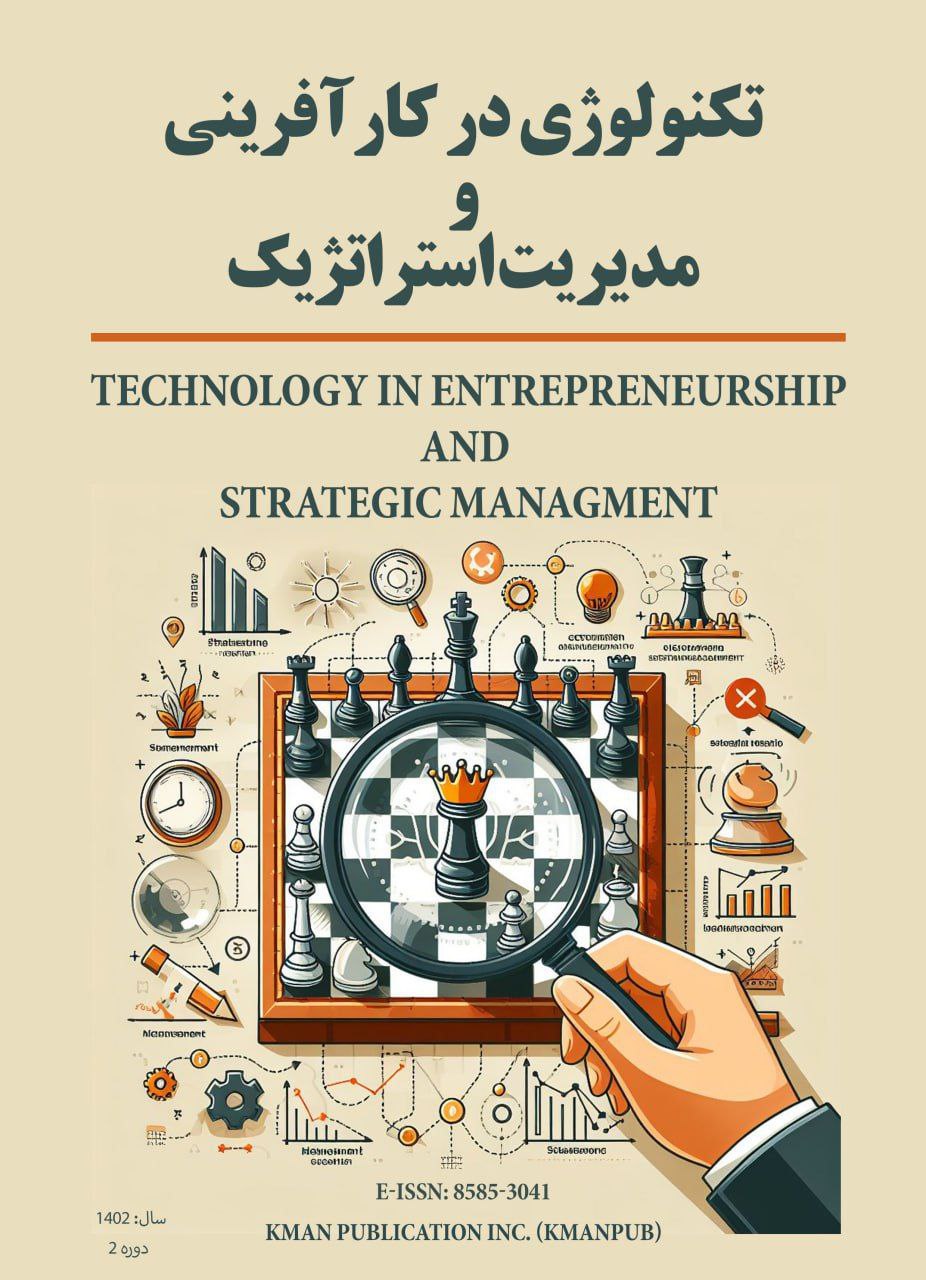Examining the Impact of Educational Technologies on Entrepreneurial Education
Keywords:
Educational Technologies, Entrepreneurial Education, Innovation, Qualitative Research, Challenges, OpportunitiesAbstract
This study aims to explore the influence of educational technologies on entrepreneurial education, focusing on how these technologies facilitate learning, innovation, and the development of entrepreneurial skills. Utilizing a qualitative research approach, this study gathered data exclusively through semi-structured interviews. Fifteen participants, including experts, educators, and entrepreneurs in the field of educational technology, were selected through purposive sampling to ensure a wide range of experiences and perspectives were represented. The analysis identified four main themes: the impacts of educational technologies on entrepreneurship, challenges facing educational entrepreneurs, new opportunities in entrepreneurial education, and the role of technological infrastructure in the development of entrepreneurial education. Each main theme consisted of various sub-themes and concepts that highlighted the multifaceted influence of educational technologies on entrepreneurial education. Educational technologies play a crucial role in enhancing entrepreneurial education by providing new learning opportunities, facilitating access to resources, and fostering the development of essential entrepreneurial skills. Despite facing challenges such as financial constraints and resistance to change, the integration of technological innovations offers significant potential for the future of entrepreneurial education.
Downloads
References
Kazmi, S. Z. A., & Nábrádi, A. (2017). New Venture Creation – The Influence of Entrepreneurship Education on Students’
Behavior (A Literature – Review Based Study). Applied Studies in Agribusiness and Commerce.
https://doi.org/10.19041/apstract/2017/1-2/18
Kleine, K., Giones, F., & Tegtmeier, S. (2019). The Learning Process in Technology Entrepreneurship Education—Insights
From an Engineering Degree. Journal of Small Business Management. https://doi.org/10.1111/jsbm.12514
Liguori, E. W., & Winkler, C. (2020). From Offline to Online: Challenges and Opportunities for Entrepreneurship Education
Following the COVID-19 Pandemic. Entrepreneurship Education and Pedagogy.
https://doi.org/10.1177/2515127420916738
Mensah-Williams, E., & Derera, E. (2023). Conceptualising Impact Measurements of Entrepreneurship Education Outcomes:
A Scoping Review. Acta Commercii. https://doi.org/10.4102/ac.v23i1.1053
Pergelova, A., Angulo-Ruiz, F., Manolova, T. S., & Yordanova, D. (2023). Entrepreneurship Education and Its Gendered
Effects on Feasibility, Desirability and Intentions for Technology Entrepreneurship Among STEM Students. International
Journal of Gender and Entrepreneurship. https://doi.org/10.1108/ijge-08-2022-0139
Upadhyay, N., Upadhyay, S., Al-Debei, M. M., Baabdullah, A. M., & Dwivedi, Y. K. (2022). The Influence of Digital
Entrepreneurship and Entrepreneurial Orientation on Intention of Family Businesses to Adopt Artificial Intelligence:
Examining the Mediating Role of Business Innovativeness. International Journal of Entrepreneurial Behaviour &
Research. https://doi.org/10.1108/ijebr-02-2022-0154
Ward, T. B. (2004). Cognition, creativity, and entrepreneurship. Journal of Business Venturing, 19(2), 173-188.
https://doi.org/10.1016/S0883-9026(03)00005-3
Xing, R., Zhou, N., & Dang, Z. (2022). The Relationship Between Cognitive Adaptability and Entrepreneurial DecisionMaking Quality: A Moderating Effect of Environmental Uncertainty. https://doi.org/10.2991/assehr.k.220107.006
Xu, A., Johari, S., Khadem Olomoom, A. H., Khabaz, M., Umurzoqovich, R., Hosseini, S., & Semiromi, D. T. (2023).
Investigation of management of international education considering sustainable medical tourism and entrepreneurship.
Heliyon, 9, e12691. https://doi.org/10.1016/j.heliyon.2022.e12691
Xu, C., & Cai, S. (2022). Optimization of Innovation and Entrepreneurship Education and Training System in Colleges and
Universities Based on OpenStack Cloud Computing. Scientific Programming. https://doi.org/10.1155/2022/2868499
Downloads
Published
Submitted
Revised
Accepted
Issue
Section
License

This work is licensed under a Creative Commons Attribution-NonCommercial 4.0 International License.











